Menu
Speaking about climate change, we cannot simply say “we can act later”. It is showing impacts on both our environment and economic growth. Realizing this, most of countries in the world commit to the UNFCC to reduce their GHG emissions as an action of climate emergency. To achieve that target, many actions should be taken, starting from building people’s awareness, to actually working together in tackling climate impacts.
Women play an important role to fight climate change. Based on Yale’s report, women have stronger pro-climate opinions and beliefs (Katie, 2019). Thus, we need more women in energy sector as they have a strong calling for greater action. The world has seen how a teen girl activist, Greta Thunberg, changes the landscape of climate negotiation. She even attended and spoke up at the United Nations (UN) General Assembly riding zero-emissions boat as an act of climate protest. As the result, the world is now more aware of climate issues and increases its collective actions.
From Southeast Asia, a project called ASEAN Climate Change and Energy Project (ACCEPT) is initiated to break the silos between energy and climate sector, improving energy policies to be more climate aware. It is quite fitting that out of 8 ACCEPT team members, 5 are women.
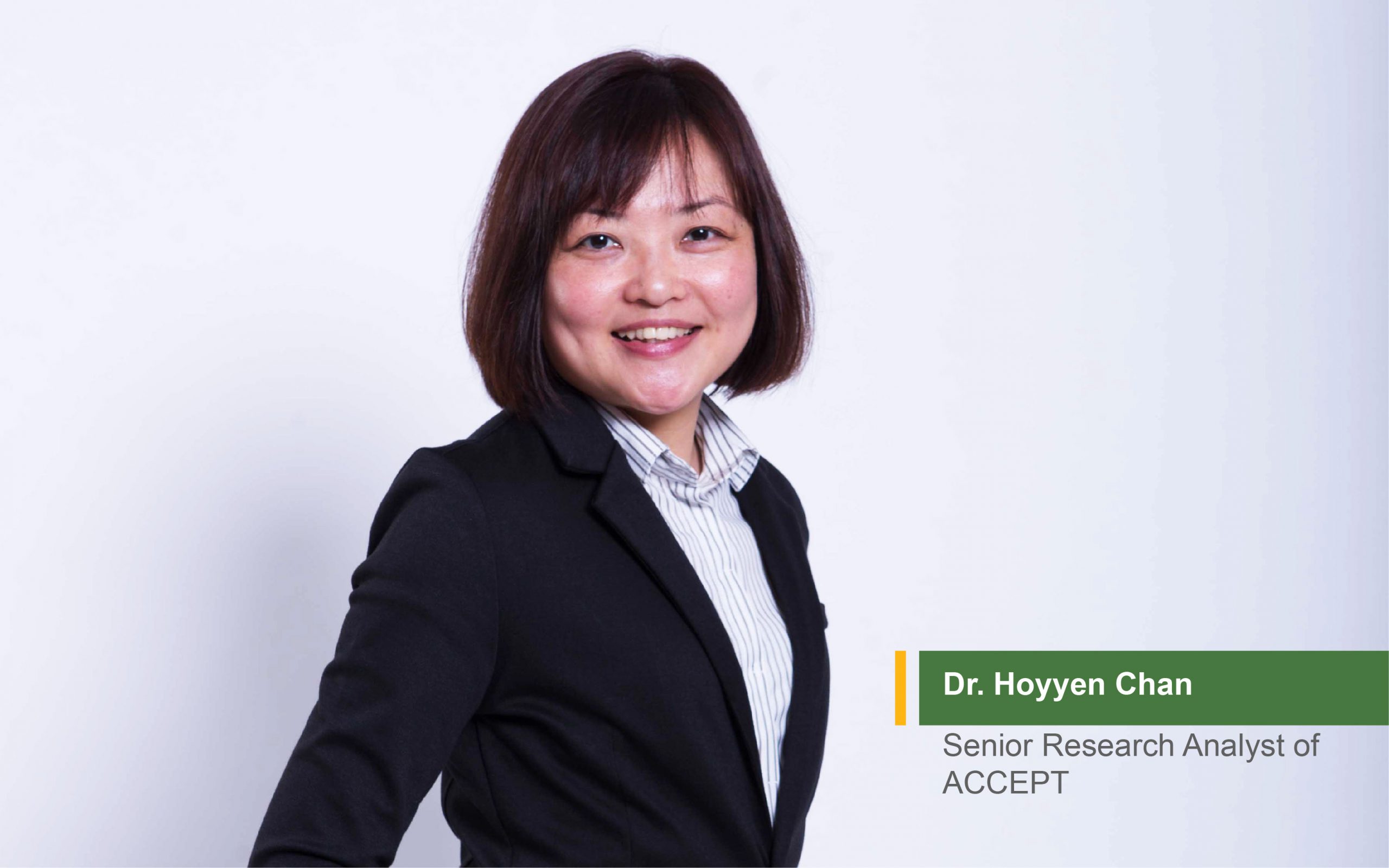 Dr. Hoyyen Chan, our Senior Research Analyst, is a woman with extensive expertise on climate change, including the lead reviewer for the National Communication and Biennial Reports by the United Nations Framework Convention on Climate Change (UNFCC). In ACCEPT, she is leading some thematic papers on energy and climate nexus. She also inspires people to discover more knowledge about energy and climate nexus through a series of lecture sessions.
Dr. Hoyyen Chan, our Senior Research Analyst, is a woman with extensive expertise on climate change, including the lead reviewer for the National Communication and Biennial Reports by the United Nations Framework Convention on Climate Change (UNFCC). In ACCEPT, she is leading some thematic papers on energy and climate nexus. She also inspires people to discover more knowledge about energy and climate nexus through a series of lecture sessions.
“Act now or regret later,” she said, strong words that are proven by her actions in tackling climate change.
Another story of climate action comes from Monika Merdekawati, Research Analyst of ACCEPT. With climate change awareness, she is actively proposing new approach and perspective in developing regional cooperation in ASEAN Member States (AMS). She also actively develops thematic paper and policy brief. Through her own experience, she has perspective about women roles in work environment.
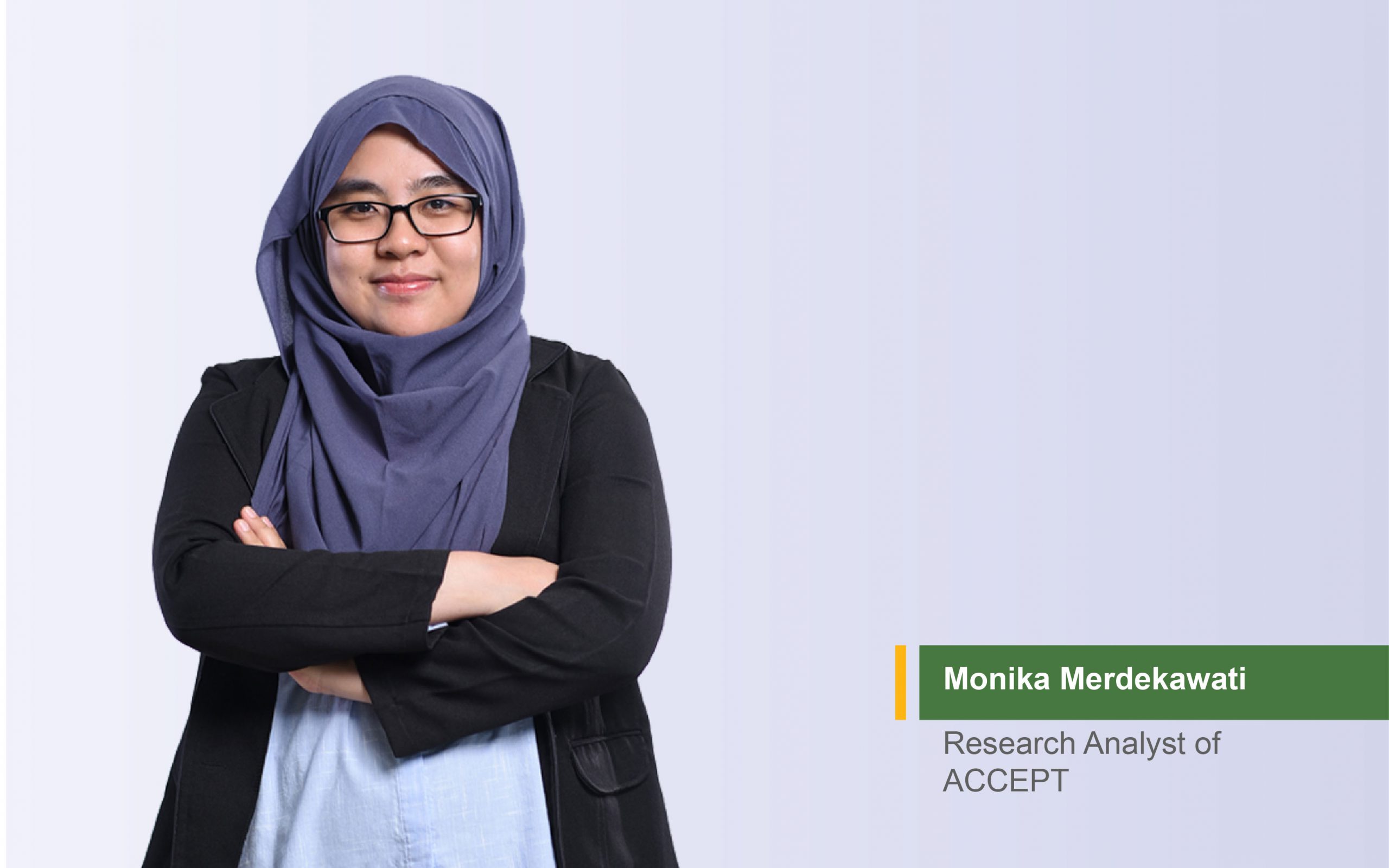
“In renewable energy, I started my career in male-oriented field e.g. project development. I experienced not only tough competition with male colleagues but company’s bias towards male. Despite all, I always believe that the quality of work depends on the passion and there should be someone to start! With the occurrence of extreme weathers in odd times, rising sea level, and warming temperature, climate change is alarmingly real. We need to speed up the energy transition in much faster pace to keep up with the below 2 degree C pathway. Hence, closing the knowledge gap on women is an important first step which could be delivered through ACCEPT.” Monika said.
Contributing her technical skills on ICT for social impacts, we have Rika Safrina, the ICT and Data Research Officer of ACCEPT.
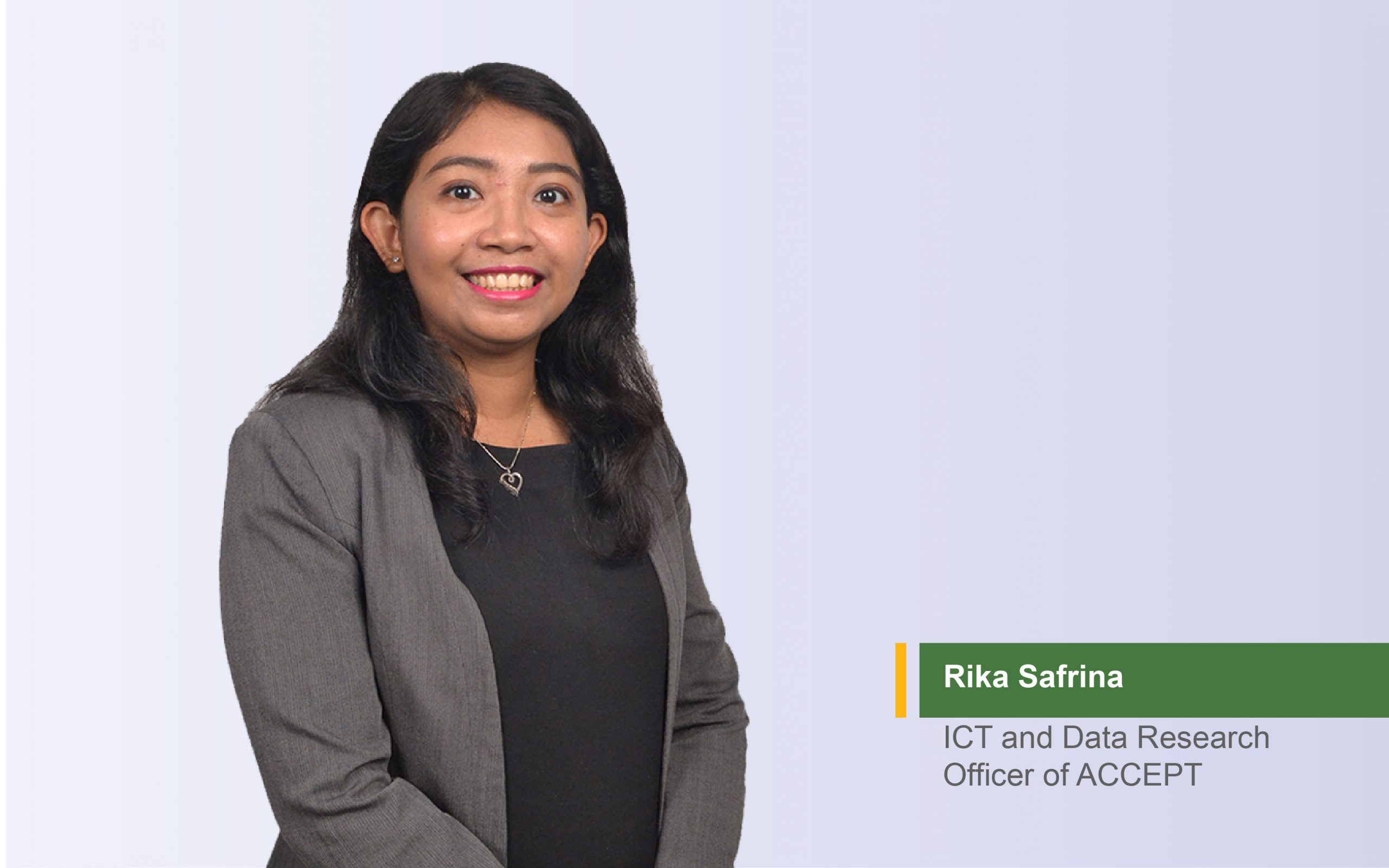
“Working in STEM as a woman is always challenging. But I try my best and bring passion to my work. Since I care a lot about sustainable urban environment, I find this job in ACCEPT is interesting. The rising of energy consumption has long been known to cause climate change, and a lot of studies and policies have been performed to balance this relationship. One of my main tasks in this project is to disseminate this awareness by managing website and data. Therefore, I am able to contribute my skills in technology for social goods.”
Next, there is Zharen Febriza, the Admin and Finance Officer. In ACCEPT, she supports and assists the team in ensuring the smooth running of the operations and compliance to the rules and procedures, as well as leads the preparation of financial report for partner.
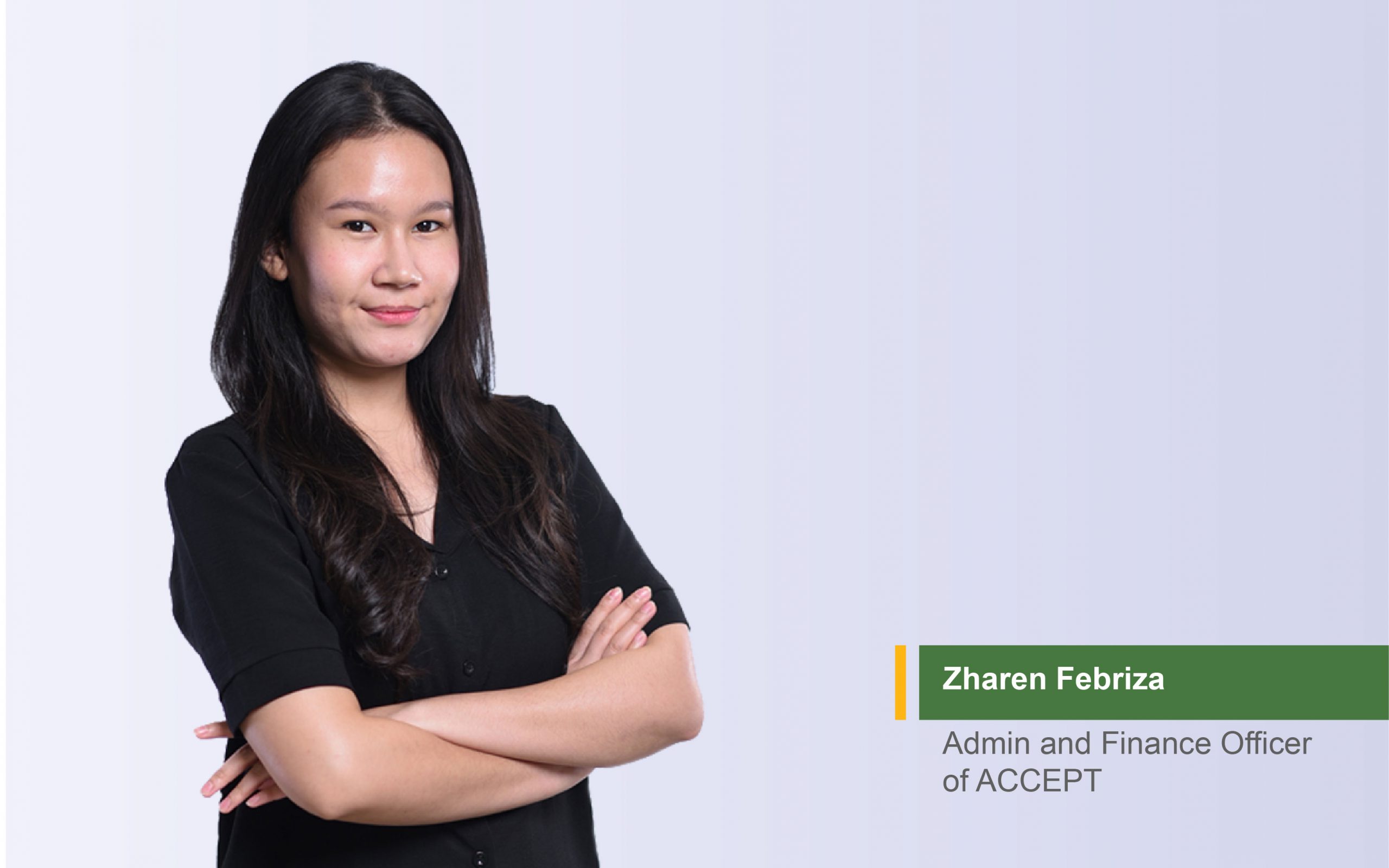
Through her skill, she has her own unique way of participating in tackling climate change as she feels that it’s very important for future life.
“We feel, we see, and we heard that climate is changing. The future is today and we are responsible for a new mechanism to avoid the worst impact of the climate change.” Zharen said.
Last but not least, we have Arumdari Nurgianti, the Data Visualisation Officer. She combines her skill and creativity with her care in climate action.
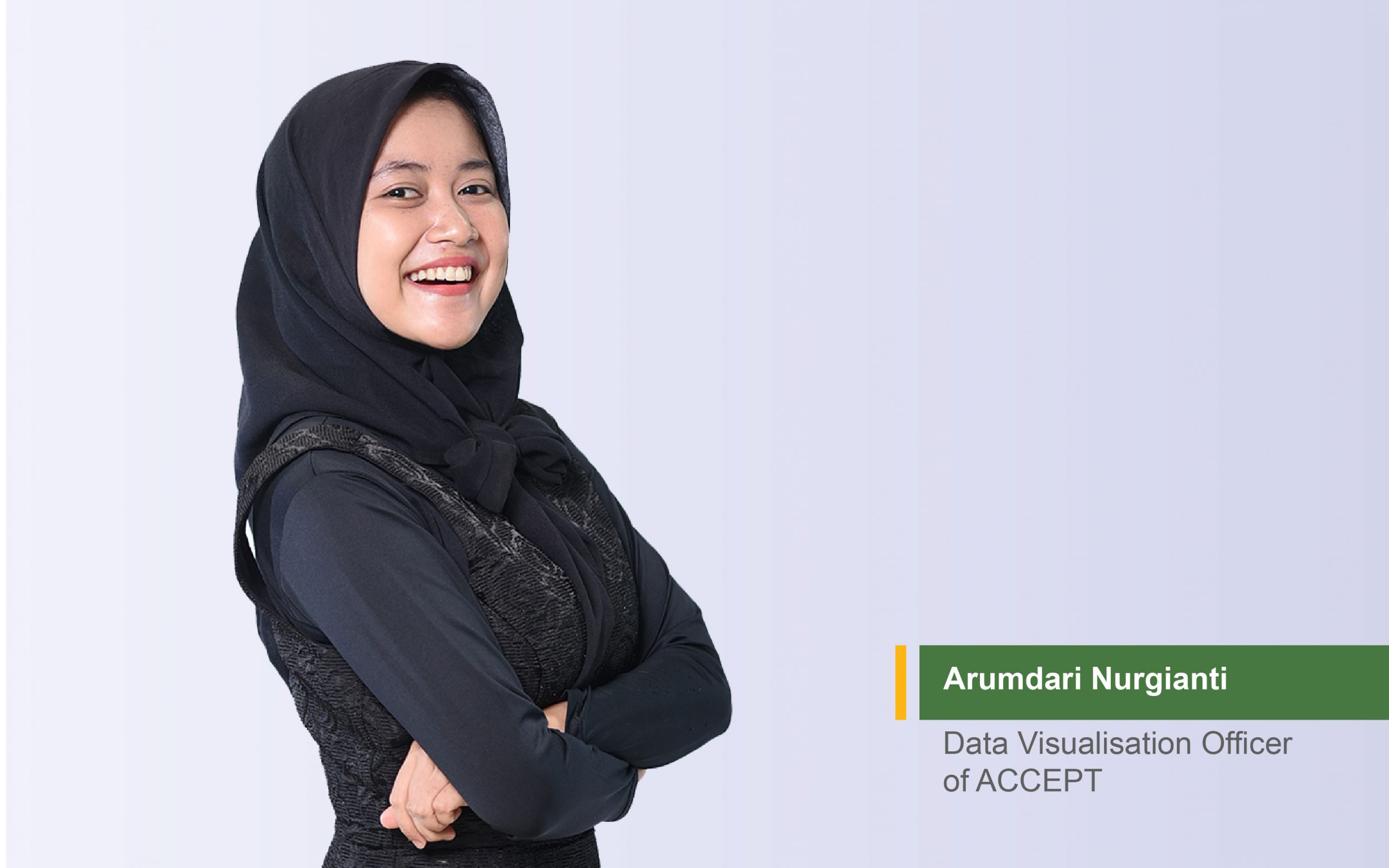
“Climate Change is happening now! For me, it’s hurting when I know that only 15% women working on energy sector whereas we need more women to fight climate change. So, being involved in ACCEPT is my way of contributing to our environment. Creating various communication materials, managing social media and promoting publications to the public are my actions to build awareness about energy and climate nexus. Step by step, through time, I believe that with the power of words and visuals, the spirit of tackling climate change will splash the world.” Arum said.
Through stories above, we can see that everybody, especially women, can contribute to reduce GHG emissions with their own unique skills and roles.
Now, how about you? Why don’t you share your stories and your important roles as a woman in energy and climate change?
Reference:
Mehnert, Katie., 2019. We need more women in the energy sector. https://blogs.scientificamerican.com
